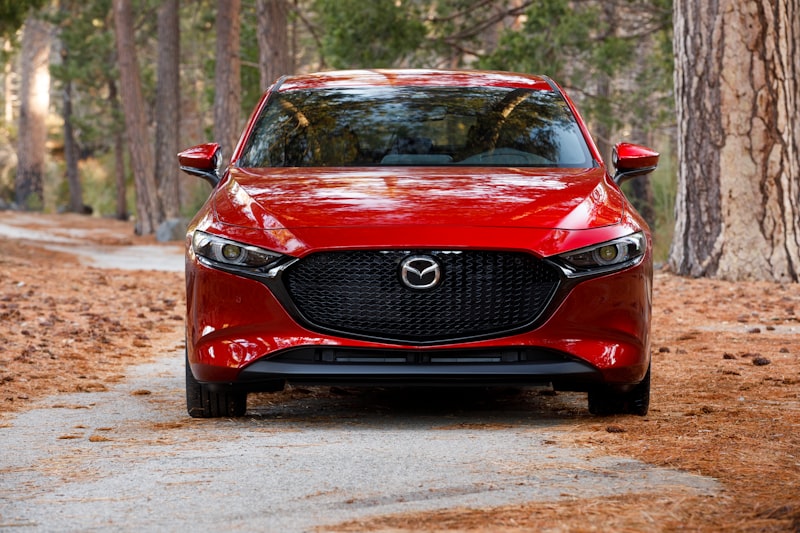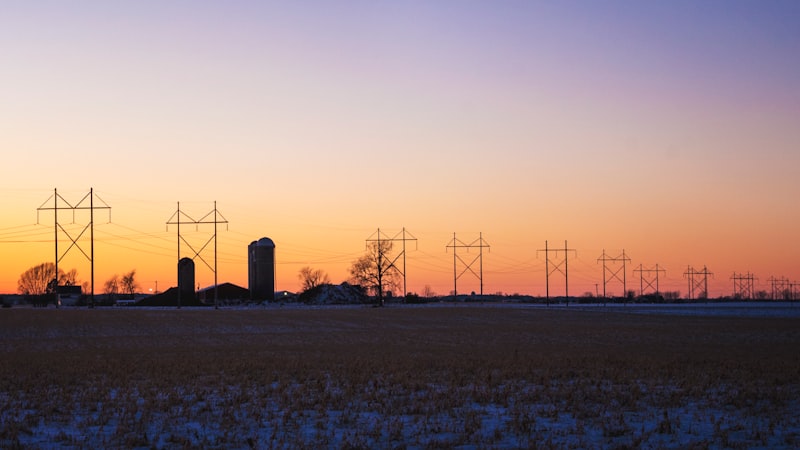Michigan is not a country; it is actually a state located in the United States. The state of Michigan is situated in the Midwestern region of the country, sharing borders with four of the five Great Lakes: Superior, Huron, Erie, and Michigan. With its unique geography, natural beauty, and vibrant urban centers, Michigan offers a diverse range of attractions for residents and tourists alike.
When it comes to natural wonders, Michigan has plenty to offer. From the stunning sand dunes of Sleeping Bear Dunes National Lakeshore to the picturesque Pictured Rocks National Lakeshore, outdoor enthusiasts are spoiled for choice. Visitors can also explore the scenic beauty of the Upper Peninsula, which is home to breathtaking waterfalls, dense forests, and pristine lakes.
Moreover, Michigan boasts several iconic cities that are worth exploring. Detroit, known as the Motor City, is famous for its rich automotive history and vibrant cultural scene. Visitors can visit the Henry Ford Museum, which showcases the evolution of American innovation, or catch a game at Comerica Park, home to the Detroit Tigers baseball team.
Ann Arbor, another prominent city in Michigan, is renowned for its prestigious University of Michigan and its lively arts and music scene. The city hosts numerous festivals throughout the year, attracting both locals and tourists. Additionally, Grand Rapids offers a thriving art scene, featuring the Frederik Meijer Gardens and Sculpture Park, as well as a variety of craft breweries.
Geographical Confusion Unveiled: Debunking the Mystery Around Michigan’s Location
Do you ever find yourself puzzled by the location of Michigan? You’re not alone! The geographical placement of Michigan can be quite perplexing for many people. In this article, we will unravel the mystery and debunk any confusion surrounding Michigan’s location. So, let’s dive right in!
Michigan, often referred to as the Great Lakes State, is located in the Midwestern region of the United States. It is surrounded by four of the five Great Lakes, namely Lake Superior, Lake Michigan, Lake Huron, and Lake Erie. This unique location gives Michigan its distinctive shape, resembling a mitten or hand, which has become an iconic symbol for the state.
To be more precise, Michigan consists of two distinct peninsulas: the Lower Peninsula and the Upper Peninsula. The Lower Peninsula is the larger of the two and is located between Lake Michigan to the west and Lake Huron to the east. In contrast, the Upper Peninsula lies to the north across the Straits of Mackinac, connecting it to the Lower Peninsula.
Now, you might wonder, why is Michigan split into two parts? Well, it all goes back to history and geology. During the Ice Age, glaciers carved out the Great Lakes, leaving behind the unique land formations we see today. These glacial activities resulted in the separation of the two peninsulas, creating the geographical division we know as Michigan.
Each peninsula offers its own distinct beauty and attractions. The Lower Peninsula is known for its vibrant cities like Detroit, the automotive hub, and the picturesque shoreline along Lake Michigan. On the other hand, the Upper Peninsula is renowned for its pristine forests, stunning waterfalls, and outdoor recreational opportunities, attracting nature enthusiasts from far and wide.
The Great Michigan Riddle: Unraveling the Country Conundrum
Have you ever come across a riddle that left you perplexed? Well, get ready to dive into the enigmatic puzzle known as “The Great Michigan Riddle.” This intriguing conundrum has puzzled many for years, and today we’ll explore its fascinating details.
Imagine a scenario where a small town in Michigan finds itself divided between two countries. Yes, you heard it right – a border running right through the heart of this community. How is that even possible? It might seem like something out of a fiction novel, but this peculiar situation actually exists.
The Great Michigan Riddle centers around the town of Mittenville, located on the border between the United States and Canada. The town’s population is split down the middle, with some residents being American citizens, while others hold Canadian citizenship. The result? A unique fusion of cultures, traditions, and legal complexities.
One might wonder how daily life unfolds in such a place. Imagine walking down Main Street and passing from one country to another with just a few steps. An American diner sits next to a Canadian souvenir shop, showcasing the diverse blend of influences. It’s truly a melting pot of customs and beliefs.
Navigating the legalities of this unusual situation is no easy task either. Residents must be aware of the different laws, regulations, and taxation systems depending on which side of the border they find themselves. Crossing the street can mean crossing an international boundary, bringing with it a whole set of implications.
Beyond the complexities, however, lies a sense of unity among the people of Mittenville. Despite their national differences, they have learned to coexist and create a harmonious community. They celebrate each other’s holidays, share stories and experiences, and build bridges instead of walls.
The Great Michigan Riddle serves as a reminder that borders are not merely lines on a map; they can shape and influence the lives of people in profound ways. It challenges us to question the very concept of national identity and prompts us to consider the potential for unity amidst diversity.
As we ponder this puzzling scenario, let’s reflect on the lessons we can learn from the town of Mittenville. Maybe, just maybe, the world could benefit from a little more understanding, acceptance, and cooperation. After all, in the face of complexity, it is often our shared humanity that can bring us closer together.
Michigan’s National Identity Crisis: The Country Quandary
Introduction:
Michigan, a state abundant in natural beauty and cultural diversity, finds itself caught in a national identity crisis. Known as the “Great Lakes State” and recognized for its industrial strength, Michigan faces a quandary regarding its place within the larger fabric of the country. This article delves into the intricacies of Michigan’s national identity, exploring the factors that contribute to this ongoing debate.
The Industrial Legacy:
Michigan’s history is deeply intertwined with its industrial prowess. The rise of the automobile industry in Detroit propelled the state’s economy to new heights, earning it the moniker of the “Motor City.” This legacy continues to shape Michigan’s identity, with manufacturing and engineering playing integral roles in its economic landscape. However, as the world shifts towards sustainable technologies, Michigan faces the challenge of reinventing itself, striking a balance between preserving its industrial heritage and embracing a greener future.
Nature’s Bounty:

Beyond its urban centers lies Michigan’s breathtaking natural beauty. From the serene shores of the Great Lakes to the mystical depths of Sleeping Bear Dunes, the state offers a plethora of outdoor wonders. Michigan’s national parks and forests provide solace for nature enthusiasts and foster a sense of environmental stewardship among its residents. Nevertheless, amid rapid urbanization and the pressures of development, preserving these pristine landscapes becomes a crucial aspect of Michigan’s national identity.
Cultural Tapestry:
Michigan proudly embraces its diverse cultural tapestry. With a rich history of Indigenous communities, European immigrants, and African American influence, the state’s cultural blend is as vibrant as its fall foliage. This amalgamation of traditions, languages, and cuisines fosters a unique sense of belonging and intercultural understanding. Yet, amidst this beauty lies the challenge of maintaining cultural authenticity while adapting to an ever-globalizing world.
Conclusion:
Lost in Geography: The World’s Surprising Misconceptions About Michigan
When it comes to geography, there are certain places that often get overlooked or misunderstood. One such place is Michigan, a state that holds its fair share of surprising misconceptions. From its unique shape to its diverse landscape and vibrant culture, Michigan is a destination that captures the imagination.
First off, let’s address the commonly held belief that Michigan is just a boring flatland. Far from it! Michigan is blessed with natural beauty, boasting stunning lakes, lush forests, and even sand dunes that rival those found near coastal areas. In fact, the Great Lakes State gets its name from the fact that it is surrounded by four out of the five Great Lakes. This makes for a paradise for outdoor enthusiasts, offering opportunities for boating, fishing, hiking, and more.
Now, have you ever heard someone say that Michigan is nothing but a frozen tundra? While winters can indeed be cold in the region, Michigan experiences all four seasons in all their splendor. Picture yourself strolling through picturesque cherry orchards in the spring, enjoying sunny beach days on the shores of Lake Michigan in the summer, exploring vibrant forests ablaze with autumn colors in the fall, and embracing the cozy charm of winter snowscapes. Michigan truly has it all.

Let’s not forget about the misconception that Detroit is a city in decline. While it faced economic challenges in the past, Detroit has been experiencing a renaissance in recent years. The city has reinvented itself as a hub of creativity, with a thriving arts scene, innovative culinary delights, and revitalized neighborhoods. Plus, don’t miss the chance to explore the birthplace of Motown music and immerse yourself in the rich cultural history that permeates the city.